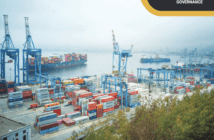The 22nd day of March each year is global World Water Day. It is a means of focusingattention on the importance offreshwater and advocating forthe sustainable management of freshwaterresources. The theme in 2019 is ‘Leavingno one behind’. Its objective is to “Leaveno one behind” and encourage people toconsider marginalized groups as theseare often overlooked and discriminatedagainst when they try to access safe water.Leaving others behind, often causesuntold suffering among people whocannot fight for themselves. Waterbornediseases, malnutrition, crop failure,deforestation, and floods… are amongthe countless sticking points. We simplycannot live without water. We knowthat water is one of the most importantsubstances on earth. All plants andanimals must have water to live. Withoutwater there would be no life on earth.Apart from drinking it to survive, the usesof water for us are immeasurable. In thisfeature, light is shed on how the UN hasbeen tackling this indispensable resourcein recent years through the World WaterDay themes and plans it provides, andwhat we can do to support this cause.We also examine extensively, this year’stheme.
UN water says in its World WorkplanWorld Water Day campaign 2019 -‘Leaving no one behind’ that The WorldWater Day campaign is about inspiringaction to tackle the global water crisis.In 2019, the campaign will focus onthe theme of ‘Leaving no one behind’.This is the essence of the commitmentof the 2030 Agenda for SustainableDevelopment, which aims to allow allpeople in all countries to benefit fromsocio-economic development and toachieve the full realisation of humanrights, without discrimination on the basisof gender, age, race, language, religion,political (or other) opinions, national orsocial origin, property, disability, residencystatus (including citizenship, residency,immigration, refugee, statelessness, etc.)or any other social, economic or politicalstatus.
It says that UN-Water has formedan internal Task Force to carry out thecampaign. Coordinated by UNOHCHRand UNHCR, the Task Force consists ofAquafed, CBD, CEO Water MandateFAO, ILO, UNCCD, UNDP, UNESCO,UN Habitat, UNICEF, UNU, UNWomen, WaterLex and WSSCC.It explains the rationale: Peoplefrom different groups are left behind fordifferent reasons. Unless exclusion andinequality are explicitly and responsivelyaddressed in both policy and practice,water interventions fail to reach thosemost in need and who stand to benefitmost. Those ‘left behind’ need greaterrepresentation in political and otherdecision-making processes, either directlyor through civil society organisationswith a clear mandate from those theyrepresent. This is why public awarenessand empowerment of communities iscritical to enable the human rights towater and sanitation to be realized.It further notes that change needssharing and involvement processes,where new and diverse voices are listenedto so that people, including those ‘leftbehind’ can, as rights-holders, be ableto influence decision. This is not an easyexercise; it requires shifting deep-seatedand unconscious bias and discriminationby changing attitudes and norms withinwater institutions and at all levels. It alsorequires a recognition of States as primaryduty-bearers for ensuring that the humanrights to water and sanitation are realizedfor all, on a non-discriminatory basis.Some of the objectives andactivities1. Put a spotlight on people currentlyleft behind and their rights to waterand sanitation by changing attitudes,shaping culture and increasingawareness…They say steps to be taken shouldinclude, information material posterswhich should be graphically designed,stories should be produced to inspirethe public. Social media outreach isnecessary and a social media kit should beproduced. In addition, as many people aspossible from different sectors should beengaged to support the campaign. Theseshould include regional country offices/regional commissions in organizing




